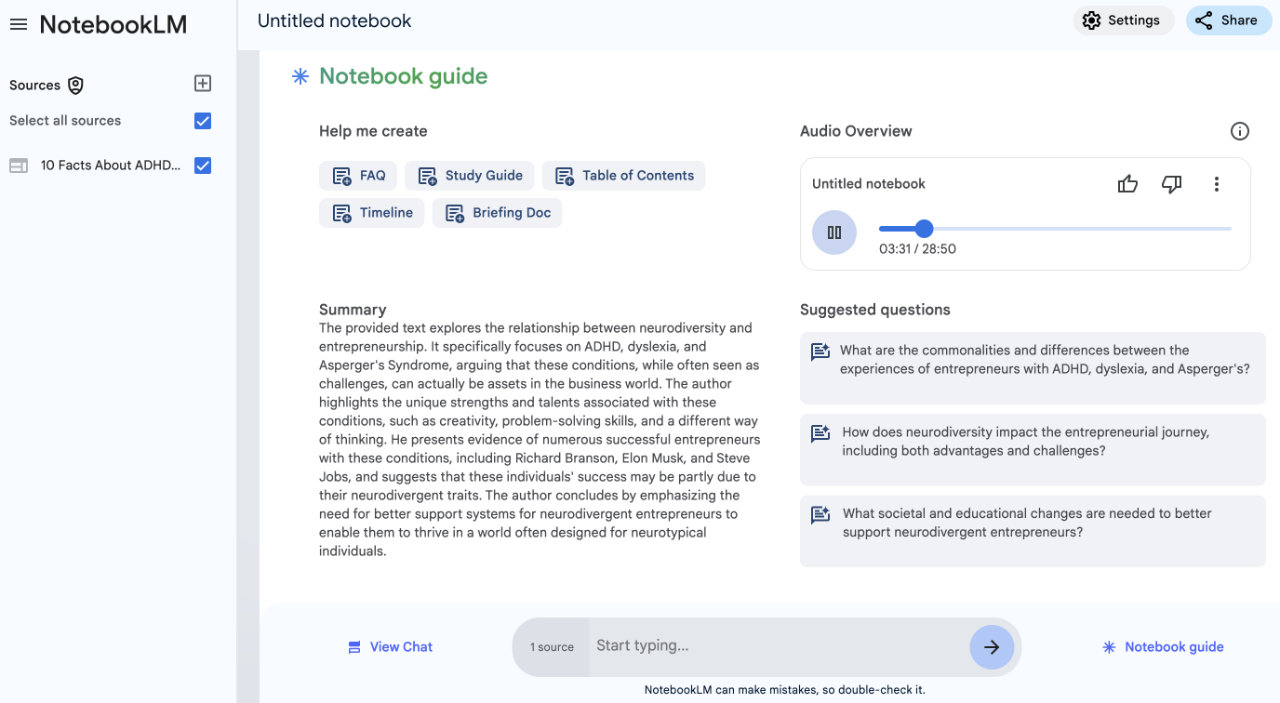When you go looking for productivity tips to help you manage your time and reach your goals, you’ll find a near-endless list of them.
From the traditional methods of simple to-do lists and time-blocking, to more obscure tools like Pomodoro timers and Bullet journals, they run the gamut from simple to complex, comprehensive to narrow and specific.
In most cases, these tools are genuinely helpful, and many people will speak their praises, however, for those who suffer from symptoms of ADHD, it can be a different story.
ADHD makes for more pronounced struggles with focus and concentration, organisation, time management, and prioritisation. The common tips and tricks are still worth trying, but they’ll often fall short in significant ways.
So, for someone with ADHD, how do you make consistent progress on your goals? You need a more tailored, dynamic approach, and one place to look for this is in a Mastermind group.
The Benefits of Mastermind Groups for ADHD
The idea of a Mastermind group goes back to 1925 with the publication of Napoleon Hill’s book ‘The Law of Success’.
In its most simple and unadorned state, a Mastermind group is two or more people coming together to solve a problem. It operates on the philosophy that ‘two heads are better than one’.
More modern forms of Mastermind groups put a few more constraints in place, to attempt to get the most out of the time put in, for example:
- There is usually a maximum number of people, about 7-8, which helps to ensure nobody is drowned out.
- There is a frequency to the meetings, such as once a week, to make sure there is progress and to keep the members accountable.
- There is often a facilitator to keep the discussions on track, and to encourage everyone to share their thoughts and ideas.
While the topic of the group could be anything, you should find yourself with a small, supportive community of people who are there to foster shared growth and the attainment of goals.
Someone with ADHD can get a lot out of a group that understands the daily struggles and is committed to each member’s progress.
Below are 5 significant reasons a Mastermind Group can be such a boon for anyone with ADHD.
1. Structure and Routine
The routine and predictability of weekly meetings can be highly effective at minimising the procrastination and distraction that often accompanies ADHD.
They create an external framework that overcomes the risks and problems of a self-imposed structure and routine, supplying a greater sense of stability that supports goal achievement.
The members should also help each other set realistic goals and deadlines—breaking them down into manageable steps, simplifying objectives, and defining the best path forward.
The group dynamic encourages accountability, builds momentum and a feeling of progress, and makes sure you’re not paralyzed by goals that are too cumbersome.
2. Positive Peer Pressure and Motivation
While the weekly meetings help impose structure, making the process social is a great way to add motivation, even in the time between meetings when you’re working alone.
There’s a mild sort of pressure that the social element brings. People are expecting things of you, so if you procrastinate you won’t only be letting yourself down, but the group too.
You’re accountable to the group. Every week you need to update members on the progress you’ve made, what you’ve learned, the challenges you faced. The consistent check-ins and feedback encourage you to work hard.
It’s all positive peer pressure of course. Members cheer each other on, progress is celebrated. It creates an atmosphere that transforms what might feel like an insurmountable task into an enjoyable journey.
3. Emotional Support and Understanding
Mastermind groups are generally formed around a central topic like entrepreneurship, but it is possible to find (or form) a group where members have similar experiences, such as ADHD.
Such a group will understand each others’ struggles more effectively, and will be uniquely positioned to draw on these experiences in helping the other members succeed.
The help could be anything from empathy and the feeling that you are not going through this alone, to practical tips and advice that you can use to manage the challenges.
This external validation helps you overcome challenges, recognise and appreciate your achievements, build confidence, and it fosters a positive feedback loop that encourages further action and momentum.
4. Creativity and Collective Problem-Solving
Brainstorming in groups is a well-known aid to problem-solving, allowing everyone to benefit from fresh angles and novel ideas that mix and match in unique ways, making for solutions nobody would have come up with alone.
This advantage is even more pronounced when members with ADHD are involved, as they often already have a unique blend of creativity and non-linear thinking.
Mastermind groups can better leverage this into collective problem-solving. Each member brings their own perspective, unique creativity, knowledge, and thought patterns.
The benefits go beyond the meetings—hearing how others approach challenges can inspire new strategies and methods that you can add to your own repertoire, giving you tools that can last a lifetime.
5. Grow Your Network
It’s natural that, while you might not know any members of the group initially, having weekly meetings and helping each other make progress on goals will likely foster significant connections and relationships.
Building such connections can open doors to future collaborations and opportunities that you couldn’t have foreseen. This is even more true when the members of the Mastermind group come from diverse backgrounds.
This is essential for people who struggle with networking in more traditional settings, mastermind groups can be more approachable and less intimidating.
Tips for Finding A Mastermind Group
Mastermind groups are capable of providing benefits to anyone when selected effectively, this is particularly true for people with ADHD.
Here are a few tips for what you should be looking for in your Mastermind group:
1. Seek out mastermind groups that align with your specific interests or goals, whether that’s career growth, entrepreneurship, or personal development.
2. Aim for 4-8 members, small enough to allow everyone to participate but large enough to offer diverse perspectives, balancing inclusiveness with variety.
3. Find a group where members are equally committed. Consistency is key for accountability, so make sure the group has a regular schedule and that members take their attendance and participation seriously.
4. Search platforms like Facebook Groups, Meetup, or LinkedIn to find them. You could also search for ADHD-specific forums or coaching websites. Alternatively, you can consider starting your own and listing it on one of those sites to find other members.
The Peak of ADHD Productivity
There’s no reason ADHD should remain a permanent or insurmountable obstacle to achieving goals or making important progress. While traditional productivity tips may fall short, Mastermind groups are a step above.
Adding the social element and committing to frequent gatherings can create a powerful sense of accountability and motivation.
The shared experiences and diverse perspectives of the group help develop tailored strategies, overcome challenges, and maintain focus.
The hard part is simply getting started, having the courage to find and meet these new people. Once you do, you’ll find a supportive community and might even find yourself with new, lifelong relationships.
- 10 Tips, Tricks And Tools To Overcome ADHD Paralysis - March 19, 2025
- 10 Interesting Facts About Adult ADHD And Mental Health - March 18, 2025
- 15 Ways To Manage ADHD Without Meds By Biohacking Dopamine - February 14, 2025




